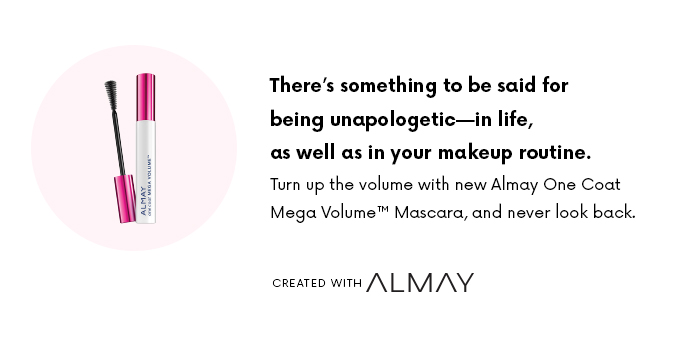What Are We Really Apologizing For?


“Why are you apologizing?”
I can’t recall any contextual details about our conversation, but the memory of my editor derailing a passing “I’m sorry” will forever be etched in my brain as an unexpectedly formative experience. I was just out of college and writing for Elle.com; as the youngest member of a team of incredibly intelligent and politically engaged women, I learned as much about feminism and self-empowerment from that gig as I did about catering to a digital audience and filing on a deadline. I was used to absorbing these kinds of lessons on a regular basis. But it felt particularly radical to reconsider my constant apologizing, which was a deeply conditioned reflex. It was as if my boss had asked me why I was sneezing.
This encounter threw me but ultimately did little to stymie the impulse, at least in the short-term. To the contrary, as I continued along my career path and transitioned into positions of more authority, I felt even more compelled to apologize for sharing ideas, offering direction, or expressing any kind of opinion. It was as if my very existence was offensive to everyone involved, and I had to resist the idea of taking up any more space in the world than I already did.
It took me years to understand that in reality, apologizing was a defense mechanism I had been fine-tuning since birth, driven by anxieties about my own likability. I sought validation in making myself completely malleable to the wants and needs of others because when I apologized, I assumed responsibility for everyone else's happiness. Treating myself as an afterthought seemed like a worthy sacrifice.
The danger of this was that I couldn’t anchor myself to anything. People are unpredictable, and when my reliance on their approval inevitably failed me, I was left to grapple only with the fragments of my self-worth. I berated myself. I literally made myself smaller. I apologized.
It’s a very confusing, very lonely kind of existence. The cruel irony is that I wasn't actually alone—at least not in my usage of the word “sorry” as a loaded substitute for truths I couldn't allow myself to express. In reality, it’s a reflex that many women share: Research shows that we don't just apologize more than men—we’re also more likely to label our behavior as “offensive.” In other words, those of us who over-apologize might also do so to offset the behavior of other people, on behalf of other people.

“We are conditioned from a very early age,” says Heather Silvestri, a New York City–based psychologist. “Studies show that we are taught even as very young children to attend disproportionately to the needs of others. As a result, women in general tend to over-apologize. This tendency is so ingrained in us that we do so automatically: ‘Don’t worry about it at all’ or ‘It’s completely fine!’”
If the pay gap serves a blatant example of how women are devalued in our society, I’d argue that the most damaging feedback women receive is this less quantifiable, more subliminal variety. It’s all the little injuries to our ego we weather on a daily basis, the little annoyances and frustrations that, in the grand scheme of things, seem inconsequential enough to overlook, much less explain to someone who doesn’t share that experience. Nonetheless, we still often choose to shoulder that responsibility—even if only subconsciously—to either overlook, explain, or even offset the blame.
It’s a stranger telling you “smile!” as you walk down the street. It’s making the conscious decision to either appease them or else be called a bitch. It’s enduring a look of surprise—or worse, doubt—when you demonstrate any kind of intellectual ability. It’s the need to elaborate why that’s offensive, only to be dubbed “uptight.” It’s seeing the praise upon a male co-worker for being so “direct” but being told that you come off as “cold” or “unlikable” when you’re just as vocal. It’s the gut-wrenching realization that someone you love will never be able to fully empathize with your plight.
It’s feeling compelled to apologize for it all—for any kind of assertion. For having an opinion. For taking up space. It’s saying sorry instead of expressing genuine and justified annoyance so that your own apology might serve as a substitute. You’re apologizing for yourself, but you’re also apologizing for everyone else.
In my own experience, to indulge this narrative is to land somewhere between resignation and society-imposed self-loathing. For most of my life, I have flirted with both ends of this spectrum in innumerable ways on a daily basis. It took me 20-something years to fully internalize the fact that there’s another option, which is to refuse it altogether.
I found myself at a crossroads many months ago when, in spite of my successes and positive feedback at work, my anxiety continued to bubble over. I worked tirelessly and still felt inadequate, even as my manager assured me that I was doing more than enough. In one of our meetings, I asked if she could help me delegate, and promptly apologized. “Why are you apologizing?” she asked. There it was again—and this time, addressing it felt crucial to my own sanity.
That didn’t mean putting a moratorium on the word “sorry” altogether—the problem, after all, has little to do with the action itself. (And policing our language only exacerbates the real issue.) “I don’t think the issue is that women are conditioned to apologize specifically,” adds my colleague Amanda Montell, who is currently writing a book that explores the relationship between gender and language. “It’s that they are expected to bear the emotional burdens of others more than men, and apologizing is the technique they’ve come up with to navigate that.”
To unlearn the reflex, I needed to learn how to prioritize my own emotional burden for a change. (It’s rather telling that as I wrote that sentence, a thought flickered across my mind: Does that make me selfish? Clearly, I’m still a work in progress.) With time and through different forms of self-care—therapy and journaling, primarily—I began to dig into the context of my thoughts and behaviors until something resembling self-awareness began to take shape.
I learned to say no when I wanted to with less and less guilt, and that silhouette became clearer. I disassociated myself from the toxic people who frequently fed off my vulnerability, people who were happy to enforce the notion that it was all my fault. Without my parasites, I could finally see myself, unobstructed, pieced together. And I realized I wasn’t at all sorry about what I saw.
As empowered as I feel now to assert myself without apology—to truly own who I am, quirks and all, without risk of feeling annihilated by the feedback—it makes me angry to consider, in contrast, the many years I spent molding myself to other people’s expectations without any concept of an alternative.
Next up: Read how one writer’s years in foster care shaped her definition of self-care.
Disclaimer
This article is provided for informational purposes only and is not intended to be used in the place of advice of your physician or other medical professionals. You should always consult with your doctor or healthcare provider first with any health-related questions.